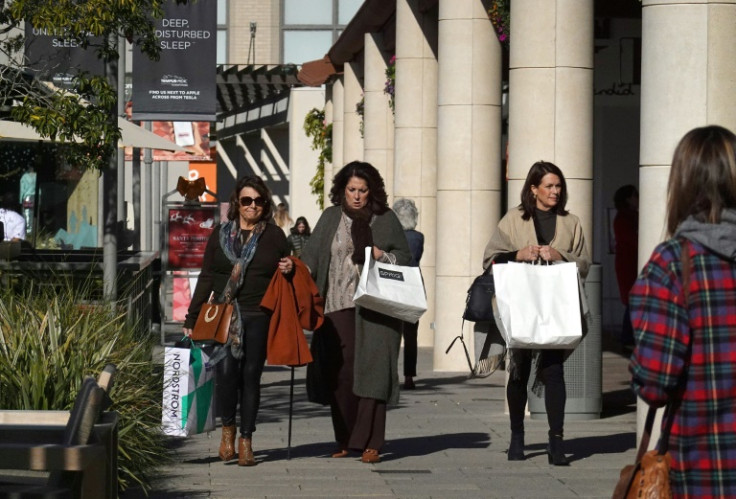Consumer Confidence Falls On Worries About Inflation, Middle East Turmoil

U.S. consumers became less optimistic for the third consecutive month as they weigh the impacts of inflation, rising interest rates and the Israel-Hamas war.
The Conference Board's consumer confidence index fell to 102.6 in October from a revised 104.3 in September, the group said in a statement Tuesday. Despite the drop, the index was still above the estimate of 100 in a Reuters survey of economists.
"Write-in responses showed that consumers continued to be preoccupied with rising prices in general, and for grocery and gasoline prices in particular," Conference Board Chief Economist Dana Peterson said in the statement. "Consumers also expressed concerns about the political situation and higher interest rates. Worries around war/conflicts also rose, amid the recent turmoil in the Middle East."
The survey showed that consumers expect a recession in the next year. But their views on the current availability of jobs were little changed.
Consumer Spending
The American economy more than doubled its pace of expansion in the third quarter as consumer spending remained solid. Gross domestic product expanded at an annual rate of 4.9% in the three months ended in September, the Commerce Department said Thursday. It's the fastest quarterly growth since the 7% rate in the fourth quarter of 2021.
Some executives and investors have expressed doubts about the real strength of the economy. Billionaire investor Bill Ackman said last week in a post on X that "the economy is slowing faster than recent data suggests." The Chief Executive Officer of Pershing Square Capital Management said the firm changed its strategy of betting against 30-year bonds.
JPMorgan, Citigroup, Wells Fargo and Bank of America alerted in their quarterly earnings reports that consumer spending is slowing.
The next major reading of the U.S. economy is the labor report for the month of October, which will be released Friday. In September, the number of new jobs jumped to 336,000, the highest in eight months.
Economists say U.S. growth should slow in the fourth quarter because of events such as the United Auto Workers strike, which is set to end after the tentative agreement between the union and automakers, and the resumption of student loan repayments.
© Copyright IBTimes 2025. All rights reserved.






















